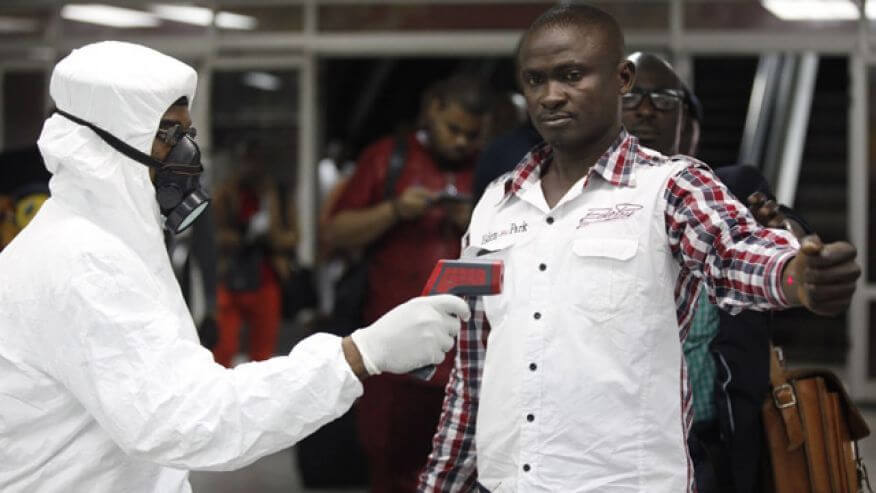On July 20, 2014, a traveler, Patrick Sawyer, exposed to Ebola in Liberia, arrived in Nigeria. He fell acutely ill and was immediately transported to a private hospital where he was noted to have fever, vomiting, and diarrhea.
Following failed response to malaria treatment, the 40 year old patient was isolated and tested for Ebola virus infection.
Advertisement
A blood specimen sent to Lagos University Teaching Hospital was confirmed positive for acute Ebola virus infection. The patient died on July 25.
On 4 August, it was confirmed that Dr Ameyo Stella Adadevoh, a UK-trained consultant endocrinologist who ordered Sawyer be tested for the disease and placed in quarantine, tested positive for the Ebola virus, and she died a fortnight later on 19 August.
Nigeria was declared Ebola free on 20 October, 2014, though in September, 19 confirmed cases led to seven deaths.
According to WHO figures, in the three worst affected countries of Liberia, Guinea and Sierra Leone, 830 health workers contracted the disease and 491 died.
Advertisement
In an Ebola Situation Report released on March 4 2015, 9,807 people worldwide were estimated to have died out of a total confirmed 23,969 cases.
In a recent development, the Ebola virus has been said to have resurfaced in the Democratic Republic of Congo (DRC) where new cases of Ebola have been confirmed.
Nigeria’s government through health minister Isaac Adewole, said it is doing everything possible to keep the country “safe.”
“We want to assure Nigerians that the Federal Government is concerned about the outbreak and will do everything possible to keep the country safe.”
He said “emergency surveillance activities at all land and airport borders,” has been set up.
Advertisement
“What we will do is to set up an emergency operation center which will be chaired by Dr. Babasanya, who actually led our efforts in Liberia and Sierra Leone and Guinea during the outbreak in 2014.
“Not only that, we will be screening incoming passengers, particularly passengers from DRC and neighbouring countries. We will also ensure we step up all activities screening people coming in so that we will not be caught unawares.”
Similarly, the Senate has urged the Minister of Interior to take necessary steps to check immigration.
The Senate noted that there have to be a proactive measure by the government in order to keep the disease which is back in Congo with 19 deaths and 39 infected casualties recorded so far, away from the country as the WHO has stated that Nigeria and other African countries are at risk of spread.
A Former Vice President, Atiku Akubakar, also said the “news of an Ebola outbreak in DRC is a call to arms.”
A major reason for minimal deaths in 2014 was because the government effectively and swiftly contained the situation.
Advertisement
A combination of health worker and public education, a coordinated field epidemiology and laboratory training program (with prior experience in disease outbreak control in other diseases) and effective set-up of emergency operations centers were some of the measures that helped to manage what would have been an otherwise deadly outbreak in a densely populated country with a highly mobile population.
Fast forward to today, there are growing concerns that Nigeria is ill prepared peradventure the deadly disease resurfaces, as the Joint Health Sector Union (JOHESU) have engaged in almost one-month strike.
It is expected that the government, as part of proactive measure, should settle the aggrieved health workers in order to ensure that all hands are on deck.
Similarly, the government needs to engage all relevant parties in appropriate sensitization, awareness and education on combating the spread of Ebola.



